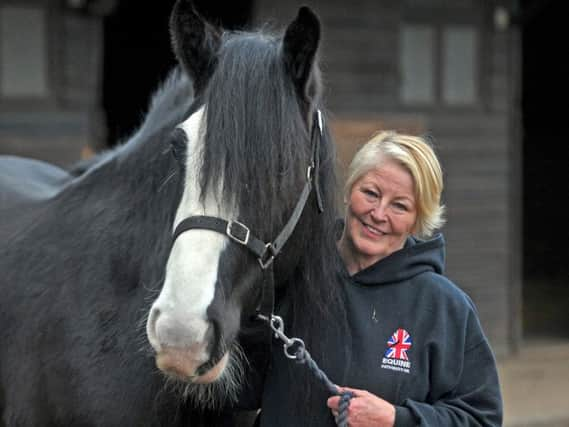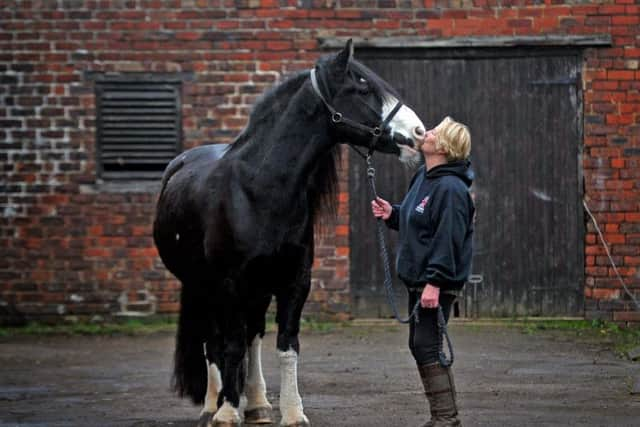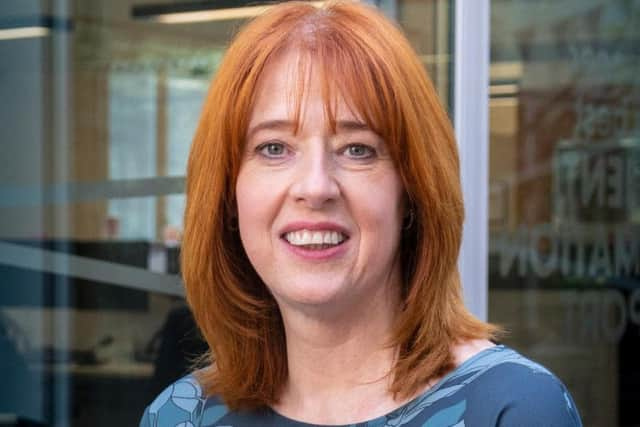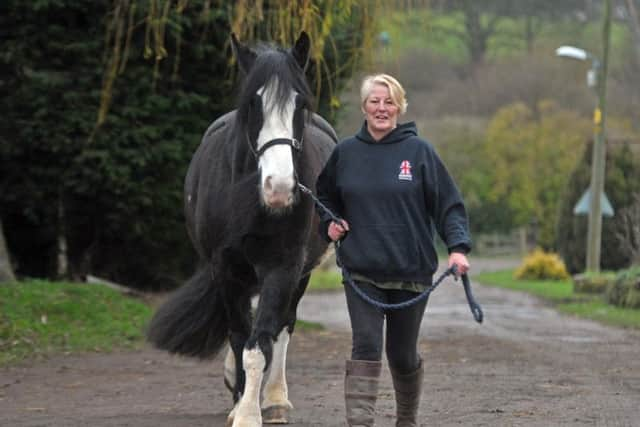Leeds cancer survivor urges others to attend routine checks after decline in take up


Catherine Meeson, 61, of Hyde Park, Leeds, always used to examine her own breasts, and thought she did not need the routine check.
She said: “That mammogram probably saved my life. I always self-examined and felt quite confident that I couldn’t feel any changes, so assumed I was clear.
Advertisement
Hide AdAdvertisement
Hide Ad“I still cringe when I think about how I postponed it for a month, because I'd just started a new job.


Catherine was called back for another examination and then diagnosed with invasive HER2-positive breast cancer.
She went on to have a lumpectomy, chemotherapy, radiotherapy, then a course of Herceptin.
“The diagnosis was a shock. Self-examination was simply not enough. The doctors said it was certainly the mammogram that caught it in time,” she said.
Advertisement
Hide AdAdvertisement
Hide AdThe provisional Breast Screening Programme 2017/18 annual report, released by NHS Digital, shows there is a “concerning” decline in the number of women taking up the routine mammogram, with the lowest uptake rate for 11 years.


More than 75,000 women in Yorkshire did not attend the check, which is offered to all females registered with a GP, between the ages of 50 and 70 years, every three years.
Women who are invited for their first ever screening around the age of 50 are often the ones who do not attend, says Public England Health chief professor Anne Mackie, who admits she is “concerned” about the figures.
She said: “It is concerning that numbers have been falling, particularly among younger women invited to attend for their first screen.
Advertisement
Hide AdAdvertisement
Hide Ad“We are working hard with NHS and local community healthcare colleagues to understand why this might be and to make appointments as easy as possible.”


Figures reveal that 75,433 women in Yorkshire, did not attend their breast cancer check during 2017-18. But out of the 257,948 invited, 182,515 were screened.
The NHS Digital report shows that in Yorkshire the uptake was 70.7 per cent during 2017-18.
Across eight English regions, a total of 750,646 women did not accept the invitation, with 1.79 million women attending out of the 2.54 million invited
Advertisement
Hide AdAdvertisement
Hide AdThe NHS estimates that its screening programme saves one life for every 200 women who are scanned, adding up to about 1,300 lives saved each year in the UK.
An NHS leaflet includes information about the risks. It states for every woman who has her life saved from screening, about three women are diagnosed with a cancer that would never have become life threatening - which leads to unnecessary treatments and side effects.
Katie Patrick from Cancer Research UK, said: “There are lots of reasons why women may not participate in breast screening. It’s important to try and remove any barriers so that those who want to take up their screening invitation find it easy to do so.
“Breast screening can save lives by picking up breast cancer early but it also means some cancers are detected and treated that may never have caused a problem in a woman’s lifetime. That's why clear, reliable information is vital. Cancer Research UK encourages women to read the information they receive with their invitation so they can decide whether to take part."
Advertisement
Hide AdAdvertisement
Hide AdDr Emma Pennery, clinical director at Breast Cancer Care, said: “While screening remains our best tool for detecting breast cancer early, it’s estimated that for every life saved, three women will have unnecessary treatment.
“It is crucial every woman eligible is offered the opportunity to attend and makes an informed choice.”
Catherine, who previously worked in human resources, and has four children and nine grandchildren, warned: “Mammograms should be given top priority. Don't cancel the appointment, it could cost you your life.
“Think about priorities such as your health and well-being, and don't postpone it,” she said.
Advertisement
Hide AdAdvertisement
Hide Ad“I will be eternally grateful to all of the fantastic NHS staff who've been involved in my treatment so far, and to Cancer Research UK, for giving me hope for the future.”
“The experience really has changed me. I am fitter than ever and I don’t get annoyed by the small stuff. I stopped working and now spend my days with horses helping others. We have less money but it’s really not that important.
“The horses have helped me to heal after the trauma of it all. They are simply amazing.”
She is now a volunteer at Equine Pathways in Gildersome, a charity which provides free equine assisted therapy using the healing power of horses, for adults and children suffering with disabilities, additional needs and mental illness.
Advertisement
Hide AdAdvertisement
Hide AdShe added: “I really love what I do, but I know if I had not been for that mammogram, it could have been so different.”
FACTBOX
More than 80% of breast cancers occur in women over the age of 50, but can also affect younger women, as around 2,200 women in the UK are diagnosed aged 39 or under, or just 4% of all cases.
Breast cancer is the most common cancer in the UK, one person is diagnosed every 10 minutes.
1 in 8 women in the UK will develop breast cancer in their lifetime.
Advertisement
Hide AdAdvertisement
Hide AdThis Breast Cancer Awareness Month around 5,000 people will be diagnosed.
Breast cancer survival is improving and has doubled in the past 40 years in the UK.
Almost 9 in 10 women survive breast cancer for five years or more.
Every year around 11,500 people die from breast cancer in the UK.
Advertisement
Hide AdAdvertisement
Hide AdAn estimated 691,000 are alive in the UK after a diagnosis of breast cancer. This is predicted to rise to 840,000 in 2020.
Men can also get breast cancer with 370 new cases in the UK each year, compared to nearly 55,000 new cases in women.
Three quarters (75%) of male breast cancer deaths in the UK are in men aged 65 and over.
More details about breast cancer and support available:
www.cancerresearchuk.org/about-cancer/breast-cancer
www.breastcancercare.org.uk